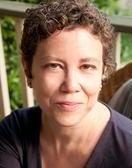Why have most founders of interfaith family communities been women? Historically, how has the male domination of religious institutions affected interfaith couples? And does the idea that an interfaith child must be defined by the religion of the mother (in Judaism) or the father (in Islam) make any sense given the reality of families with one parent, with two fathers, with two mothers, or with non-binary gendered parents?
These are a few of the questions I explore in a new essay written for Georgetown University’s Berkley Center for Religion, Peace & World Affairs, as part of their project on “Women, Religion and the Family.” More than a dozen thought-provoking essays and interviews are posted on the Berkeley Center website, by Catholic, Hindu, Jewish, Muslim and Protestant women writers. The project (which is co-sponsored by the World Faiths Development Dialogue) was designed “With the goal of building a knowledge base and promoting dialogue” by asking “a group of scholars, activists, faith and community leaders, and development practitioners to produce an original series of ‘think pieces’,” on the intersection of these topics, order to “generate questions, explore curious topics, and suggest further study.”
It is worth sampling the diverse perspectives in these essays, and joining in the discussion on twitter with the hashtag #FaithFem.

